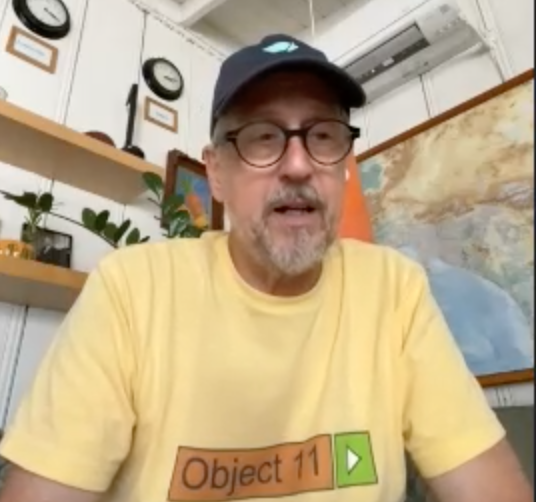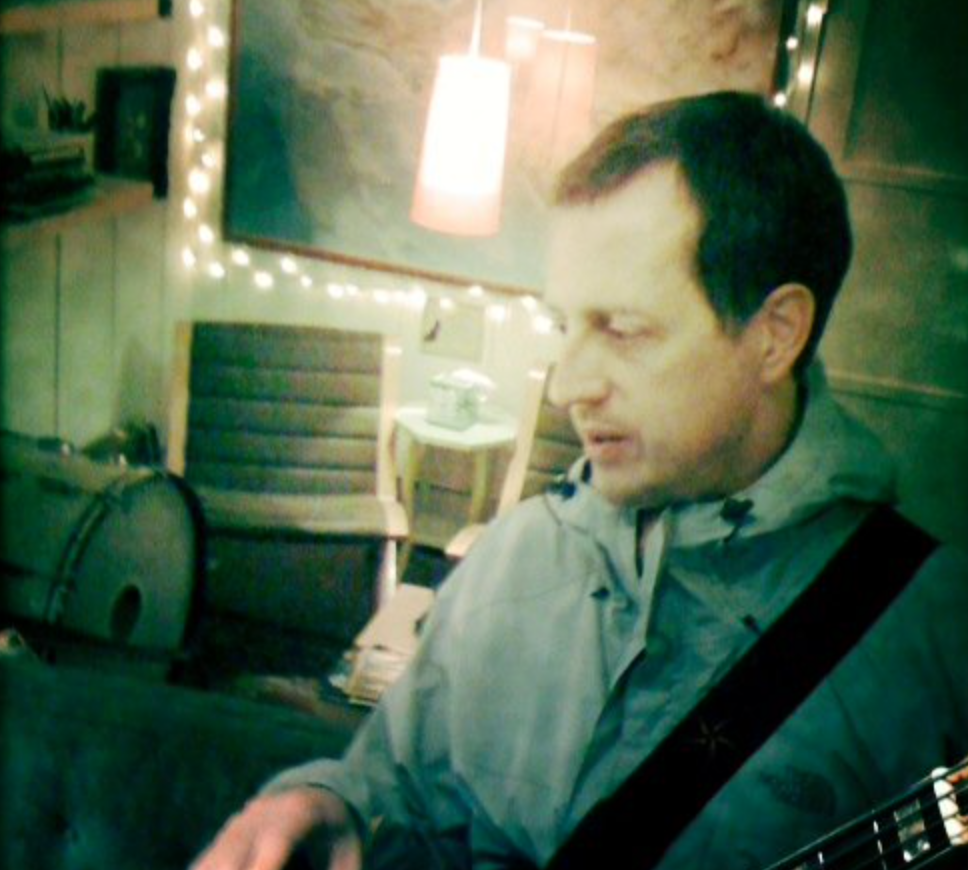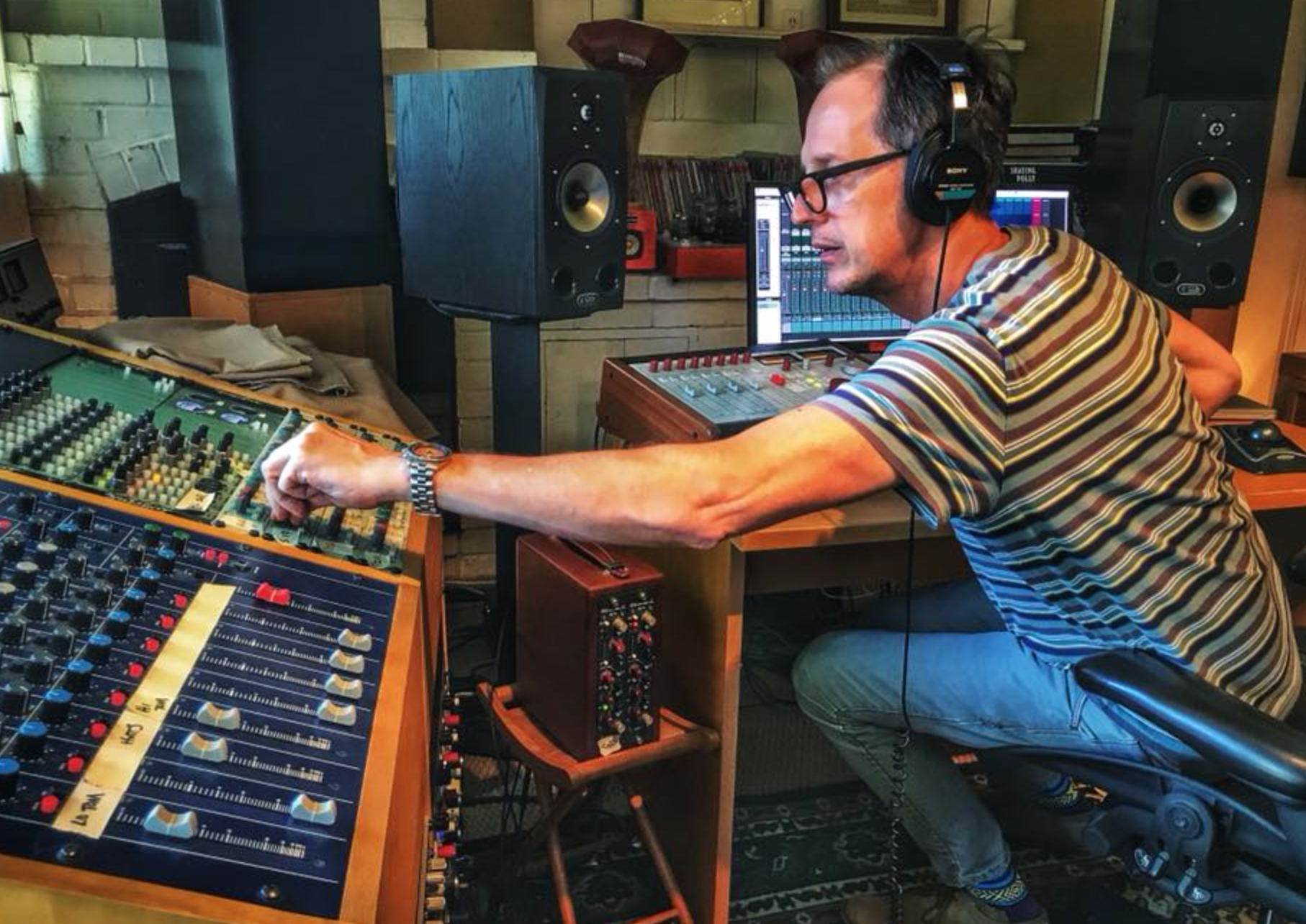Now Playing
Current DJ: Jenny Lizak
Songhoy Blues Norou (featuring Rokia Kone) from Heritage (Transgressive/PIAS) Add to Collection
Requests? 773-DJ-SONGS or .(JavaScript must be enabled to view this email address)
 by Andy Frye
by Andy Frye
You might laugh—but Brad Wood has been working at home way, way before it was cool.
Years before the pandemic, this down-to-earth sound engineer and record producer set up Seagrass Studios adjacent to his home in Los Angeles. It has extended the continuum of his important work with some of rock music’s most innovative artists, which began back in Wicker Park in the ‘90s at Wood’s legendary Idful Music Corporation.
Over the span of his long career, Wood has produced albums from Placebo and Pete Yorn to Lisa Loeb and Oklahoma alt-rockers Skating Polly. But he’s best known among Chicago music diehards for producing some of the 1990's best albums, including Liz Phair's Exile in Guyville and Veruca Salt's American Thighs.
Two weeks ago, I spoke with Wood over Zoom about his exploits in recording music. He talked about the different kinds of bands he’s worked with as well as how artists and record labels seek him out.
“Liz Phair and Skating Polly—those two represent two far ends of my career, now that I’m nearing the end of my career,” Wood joked. “But, both came from someone behind the artist who knew of my work and said, ‘I have a record I’d like you to produce.’”
In both cases, he said the artists came from “tiny independent labels, (each) a one-person shop.”
At Idful, with partners Brian Deck and Daniel Sonis, Wood recorded and produced works by Tortoise, Red Red Meat, The Jesus Lizard, Eleventh Dream Day, Loud Lucy, and many others. Wood said that now, in 2024, the music business is different than it was during the exciting thrust of 1990s Chicago.
“Bands do not stay here,” Wood says of Seagrass Studios, explaining that most often, out-of-town artists do Airbnb. “Sometimes, I just get stuff to mix, or I might go where the band is, since it’s cheaper for one person to travel than a whole band.”
[
Liz Phair's first single "Never Said" (1993). Brad Wood is seen in the orange shirt.
Yet, Wood explains that owning a recording studio isn’t like the crazy old days of punk and alternative when, say, the Dead Kennedys were itching to get kicked out of their studio, or when Oasis turned the fabled Rockfield Studios into the aftermath of a drunken pub crawl in 1995.
“There’s never a bunch of dudes in my house, raiding the refrigerator,” he says. Yet sometimes, long in the past, owning a studio may mean musicians “on the phone, outside arguing with a girlfriend,” maybe finishing off a six-pack.
“One time (film star) Ione Skye was here,” Wood said, recounting a recording session in 2004 with Australian solo artist Ben Lee. “I think it’s because we were friends. She’s very casual, and would just wander into the back door of our house, hang out, read through our magazines. It wasn’t even bad, just surprising.”

Brad Wood in the Studio (courtesy of bradwoodmusic.com)
Wood added, however, “My kids have grown up knowing that when I’m recording and there are musicians in the backyard." Since he opened Seagrass just over 20 years ago, he concedes that “some originally unspoken, and then clearly-defined boundaries” have evolved.
Alas, no drum kits smashed and thrown into the street. No Glenn Danzig brawling with other homeowners on the block. At least not for now.
“The neighbors are universally supportive,” Wood says. “And I’m respectful of them too.”
From Rockford to rock royalty
Brad Wood grew up in Rockford, which he points out is also the hometown of arena rockers Cheap Trick. Maybe there was something musical in the water. Later, when he attended NIU, Wood played saxophone “well enough to study jazz performance,” but claimed that “compared to most other musicians there, I wasn’t that good.”
Even so, it was Chicago’s music scene that called Wood to relocate, in 1987. As the drummer and a member of the band Shrimp Boat, whose music he mixed, Wood honed his audio skills and built relationships with other music people enough to get noticed. Then came Liz Phair.
“Liz and I were acquaintances, and sort of friendly,” Wood said, explaining that someone financing Phair’s first recording project approached him.
“He said, ‘I want to record her album at your studio.’ And then I met (with) Liz the next evening.” Wood said the original plan with Phair was that Wood would simply record, and that “this tiny, one-person label (Feel Good All Over Records) would produce the album.”
Phair’s Exile In Guyville was released in June 1993, gathering huge praise from critics right in the middle of the Seattle grunge boom. At the same time metal-influenced acts like The Smashing Pumpkins went mainstream. Next came Seattle band Sunny Day Real Estate, and a newish local band called Veruca Salt.
“Veruca Salt was rehearsing in a bank vault inside a building that was a factory, in the Bucktown-Wicker Park area,” Wood said, when he met them in 1993. “I saw their first show, either at Czar Bar or Phyllis’s, and I thought they were fantastic.”
Within a few months, Wood and Veruca Salt worked on what was supposed to be just a single for Minty Fresh Records. But what came, Wood said, “turned into an album’s worth of material.”
The following year, in late September 1994, Veruca’s debut American Thighs was released to rave reviews, while the single “Seether” shot across the nation via MTV. Despite their catchy hooks and glamorous looks, Wood said they weren't copping hard for fame.
“Back then they were not ‘rock stars’, and barely were a band. Nina (Gordon) and Louise (Post) were just writing songs, trying to figure out how to make music together. I think that’s why that album was so good.”

Brad Wood in the studio (courtesy of bradwoodmusic.com)
Later, in 2017, Veruca’s Post and Gordon took part in Skating Polly’s EP called New Trick, providing backing vocals on “Louder Than Outer Space” along with singing on and co-writing other tracks.
Talking with Wood for under an hour revealed a treasure trove of fun stories about great artists from the 1990s and beyond. Wood describes Lisa Loeb, with whom he worked on No Fairy Tale (2013), as “incredibly smart, erudite, careful with her words, and very down to business.” Likewise, Wood described his stint with the quirky L.A. band that dog (Retreat From The Sun, 1997), as him “just there to record and make it as fun as possible,” while tipping the band’s lyricist Anna Waronker and violin virtuoso Petra Haden as “super smart, and wicked funny, but—boy, they’re serious.”
Wood brought Liz Phair along (backing vocals) on Ben Lee’s 1995 debut, Grandpaw Would. The production of this underrated ‘90s gem would pair Wood with Grand Royal Records and the label’s head, Mike D of the Beastie Boys.
“Mike was pretty shy in those days. No pretenses, no rock star tendencies at all, just self-deprecating and very normal. Funny, talented, very easy to work with.” Wood said also that recording sessions at the Beasties’ G-SON Studios (also in L.A) come with tons of hangout time, pickup basketball and games of horse.
Lastly, Wood revealed that he “did not enjoy working with Billy Corgan” on the Pumpkins’ 1998 album Adore. But Wood laughed it off as old news, saying, “It was fine. Nobody cares. What matters is the music.” To that point, Wood said, “I love Siamese Dream. It was one of my favorite records of that era.”
Andy Frye has written for Rolling Stone, ESPN and Forbes and is the author of NINETY DAYS IN THE 90s: A Rock N Roll Time Travel Story, which has just been optioned as a film.
Next entry: Fig Dish Returns With Two Singles and Two Sold-Out Shows
Previous entry: CHIRP Radio Weekly Voyages (Aug 5 - Aug 11)